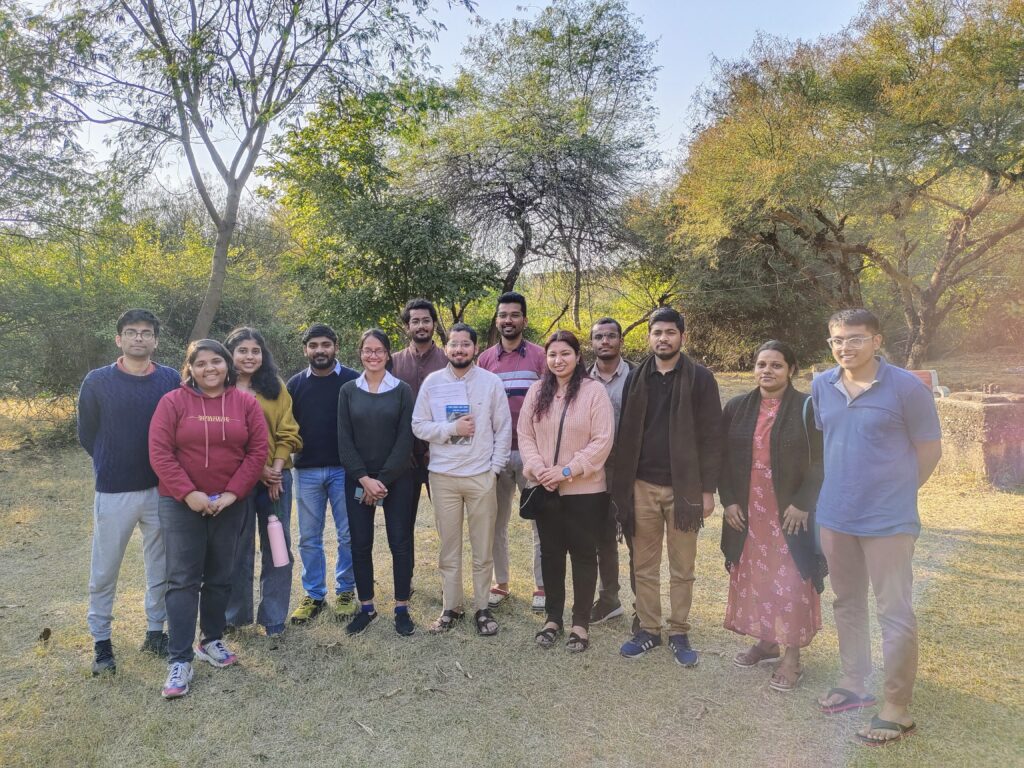
This blog provides discussion highlights for Sunday IR Cafe #43. Conducted on 5th February 2023, the discussion covered International Relations and Intellectual History.
Core Arguments:
- Bell’s literature survey of intellectual histories of IR and global political thought focuses on multiple purposes of intellectual history, trends in the field, and the marginalised themes requiring more attention.
- By and large, intellectual historians have sought to use historical scholarship to inform contemporary understanding of politics or policy. This has taken multiple forms, including identifying new arguments or reframing existing ones in political theory, doing a critical genealogy of academic concepts, diffusing unwarranted claims to originality, and historicising theoretical/philosophical arguments.
- While modernity and Enlightenment are not the central interpretive category in intellectual history of IR, intellectual historians have extensively dealt with the histories of empire and the disciplinary history of IR itself. The relationship between liberalism and empire, in particular, has been a fruitful avenue of inquiry. Anti-imperial ideas intersecting with the racial emanicpatory visions have also drawn scholarly attention. Disciplinary histories of IR have served to enrich our understanding of the field itself. Notable contributions in this vein include debunking the great debates, mapping institutional networks facilitating IR knowledge production, reinterpreting realism, uncovering IR’s complicity with imperialism and racism, and highlighting emancipatory visions of the international.
- The discipline, however, would do well to broaden its focus beyond the European great thinkers to include female thinkers and non-White as well as non-Western international political thought.
Discussion:
- The intellectual history of IR has contributed to enriching our understanding of the discipline itself which has been popularly presented in the reified image of realism. The recent exciting works of intellectual history have sought to uncover the complicity of the IR discipline in racial and imperial projects.
- One important contribution of the intellectual history of IR comes in terms of contextualising political thought. Christopher Bailey’s scholarship on Indian liberalism and Jennifer Pitts’ work on liberal imperialism are cases in point. Intellectual historians of IR have also problematized many concepts that students and scholars take for granted. The idea of sovereignty, for example, has been unmoored from its orthodox date of origin: the treaty of Westphalia in 1648.
- Of mainstream IR theories, it is constructivism that comes closest to the craft of intellectual history in its focus on ideas as drivers of human action. However, there are both overlaps and differences in how constructivist scholars and intellectual historians deploy ideas in their work. Both underline the mutability of norms and values. Still, while the former writes big histories of an idea, the latter situates an idea in a given context and provides granular analysis.
- In the Indian context, scholars have unearthed the strategic thought of past Indian rulers. Be it the strategy of Shivaji or the Mughals under Akbar, scholarship has mined history to throw greater light on ideas and concepts that we often mistakenly believe are of recent vintage. It is, however, unclear whether such work can be strictly labelled intellectual history. Further, new avenues in intellectual history can be pursued in the Indian context. For instance, while there have been a lot of writings on liberalism in the age of the empire and its refashioning by the Indian liberals, the intellectual history literature on post-1947 Indian liberalism remains sparse. Aditya Balasubramaniam’s upcoming book on the Indian neoliberals and the circulation of their economic ideas will serve as a valuable addition to the area, and so does Thomas William Shillam’s paper on the left-libertarian Indian thinkers in the context of Cultural Cold War. But, surely, this remains an underexplored area of inquiry.
- History and ideas have the potential to shape the foreign policy of states, which raises the issue of identifying conditions in which a particular reading of the past succeeded or failed to shape the state policy. Intellectual historians may look at the evolution of historiography to understand the impact of a particular reading of history on shaping state actions. In the case of Israel, for instance, the first set of Zionist historians presented a particular picture of nation-building project. The next generation of historians, in contrast, emphasized the dispossession and suffering of the Palestinian population that went into the making of Israel as a nation-state. This particular reading of history, however, did not exactly percolate down to the masses and was unable to shift Israel’s policy in a more accommodative and progressive direction.
- In a separate case, however, it can plausibly be argued that teaching a distorted version of history in Pakistan that vilifies its neighbour India has an indirect bearing on the conduct of foreign policy. The mass public opinion that is hostile to India certainly makes it easier for the military establishment to implement anti-India policy, which gains traction among the domestic audience due to the way they look at their past relations with India.
- An age-old question remains portent while discussing intellectual history: do ideas precede context, or does the causal correlation run the other way around? Differing schools of thought have provided contrasting viewpoints. It is difficult to extricate one from the other; ideas are baked into the context.
- The exercise of intellectual history for emancipatory purposes raises a curious meta question related to the politics of knowledge production. In so far as ideas are drivers of human action, social scientific research and especially policy-related writings have the worldmaking potential which is well recognised. Intellectual historians working in progressive vein seek to use their research findings in service of bringing change in society at large. However, it might be the case that for a variety of reasons in different contexts, the envisioned change or policy recommendations need not lead to optimal outcomes. In such context, an alternative critique of these ideas can be mounted from non-progressive positions using intellectual history as a tool to uncover the folly of progressive attempt at worldmaking.
- In conclusion, presentism is one particular issue that historians need to grapple with. As so many of our charged political debates exhibit, both in India and the West, history is often utilised in the service of the present. One view on the presentism debate goes that historians must not be heavily influenced by the diktats of the prevailing trends and must look to produce scholarship independent of its political merits. While it is not possible to produce any such thing as an objective history, it is nonetheless beneficial if historians look at the past while maintaining a critical distance from the present.
(Discussion Transcript by Anondeeta Chakraborty and Arvind Mohan, Edited by Sanjeet Kashyap)

